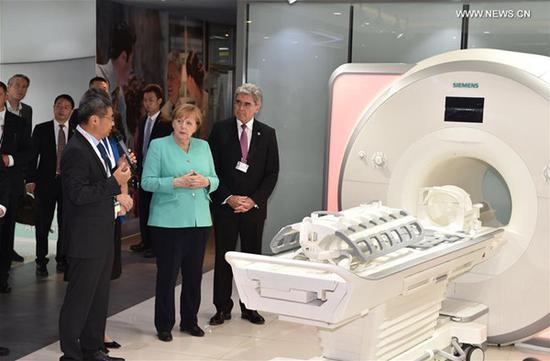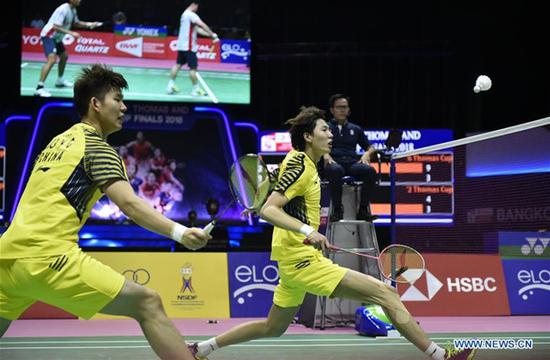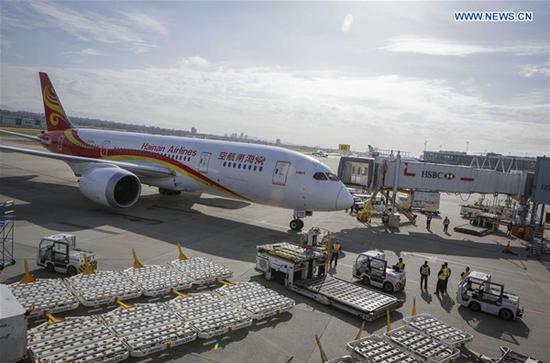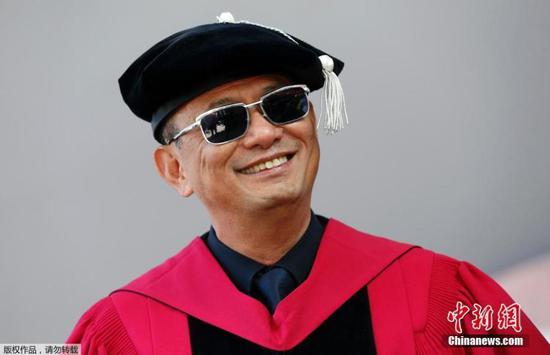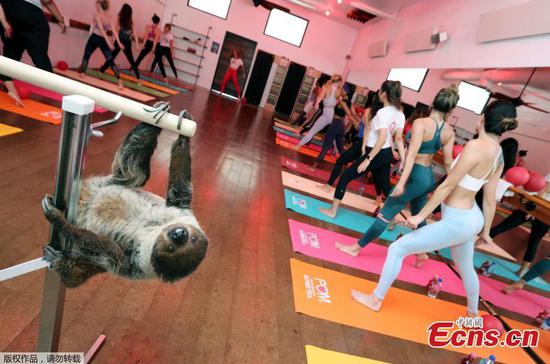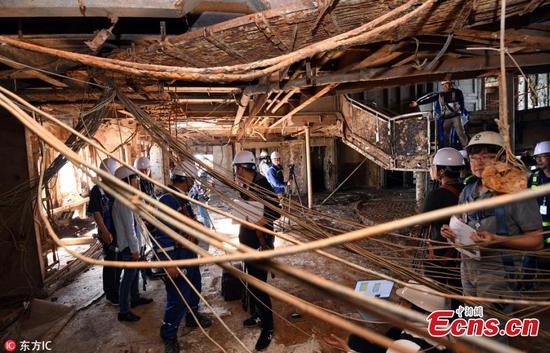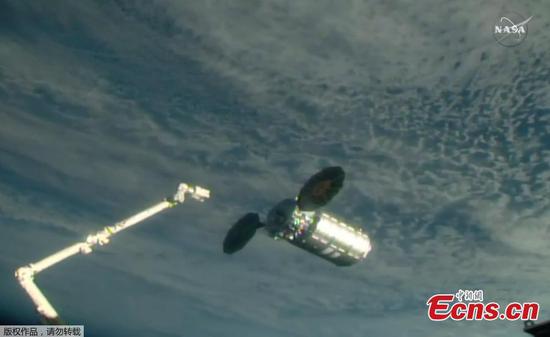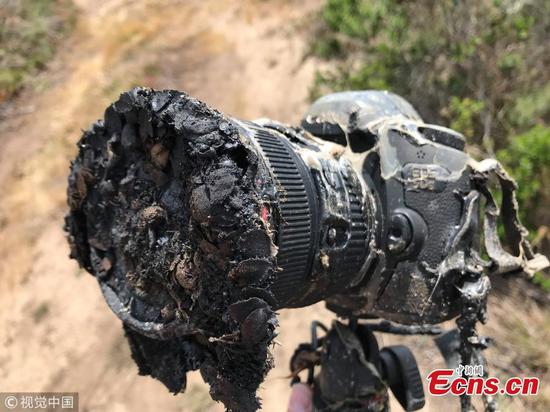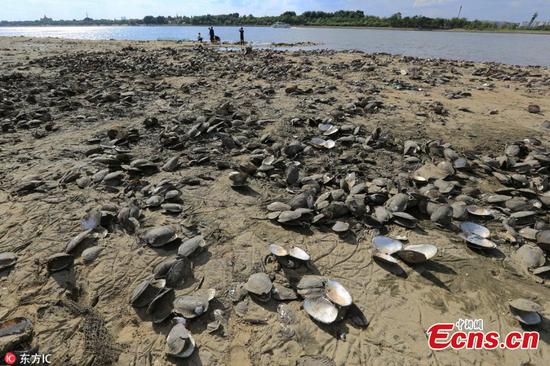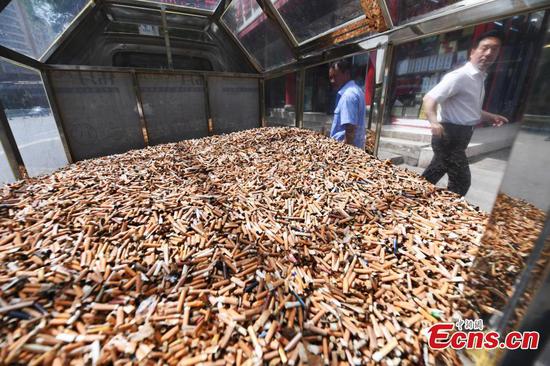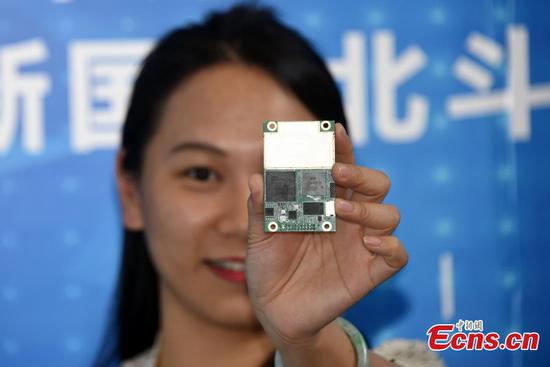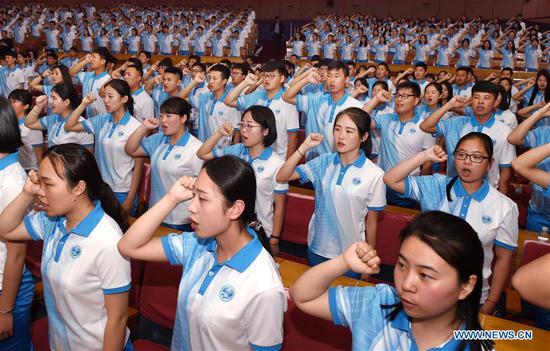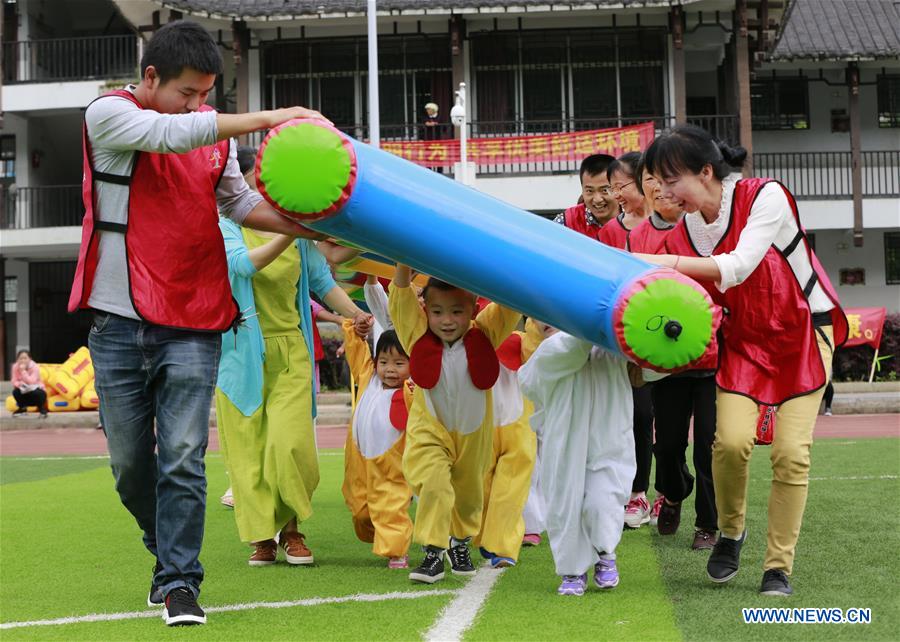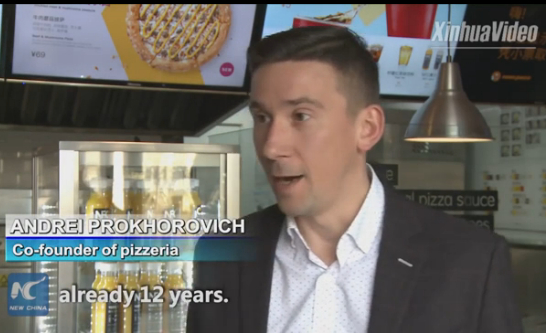Hefei, once considered a rural backwater, has become a favorite city for multinational companies, thanks to the rapid development of its manufacturing industry.
Whirlpool, an American home appliance maker, opened its new China headquarters and global R&D center in the city on Thursday. On Friday, Volkswagen, together with its Chinese partner JAV Motors, launched its first domestically made electric SUV in Hefei, also capital of Anhui Province.
The ongoing World Manufacturing Convention in the city attracted about 4,000 participants worldwide, including senior executives of 315 foreign manufacturing firms, aiming to cash in on China's manufacturing upgrades.
"China is developing faster than the rest of the world on new energy vehicles, intelligent transportation and connectivity. Volkswagen strongly takes it into account," Volkswagen Group China President and CEO Jochem Heizmann told Xinhua.
JAC Volkswagen was established in December 2017. Within half a year, it launched its first vehicle, which will hit the market in the latter half of this year.
Last month, China announced plans to phase out shareholding limits for foreign investors in the automobile industry as part of its efforts to further expand opening-up. The cap will be removed for commercial car producers in 2020 and passenger car producers in 2022. International carmakers will be allowed to have more than two joint ventures in the country as well.
Volkswagen will be a direct beneficiary of the policy change as it opens its third joint venture, JAC Volkswagen, the country's first joint venture focused on developing electric vehicles. The German carmaker plans to provide 400,000 new energy vehicles to Chinese customers before 2020, and up to 1.5 million such vehicles by 2025.
Like Volkswagen, Whirlpool has been in the Chinese market for more than 30 years. Unlike many multinationals that put their Chinese headquarters in coastal metropolises, it moved its headquarters from Shanghai to Hefei, a rising home appliance manufacturing hub in China.
"The presence of competitors in Anhui Province actually helps us as well, because we collectively attract the best suppliers, knowledgeable technicians and university graduates," said Whirlpool President and CEO Marc Bitzer, adding that the Hefei-Anhui industrial cluster is the company's third, and it has tremendous growth opportunities for the future.
"We started in China more than 30 years ago, when 'Made in China' meant low cost and low tech. We have developed in the last five years a new model we called 'Made in China' that equals high tech and high quality, which is in line with the vision of the Chinese government," Bitzer told Xinhua.
Whirlpool's Hefei smart factory, which was completed in November last year, includes digitization, automation and intelligent logistics systems, which carry out intelligent control of production processes and backend data feedback.
"The high cost, high quality smart factories are a sustainable model for China. The sooner we start, the earlier we arrive," he said.
The transition to high-quality development and expansion of opening-up in the manufacturing industry have created enormous opportunities for foreign companies, with more value-added products and a market with bigger purchasing power, thanks to the rise of China's middle class, according to Wu Xiaohua, deputy head of the Academy of Macroeconomic Research under the National Development and Reform Commission.
Among 609 manufacturing sector sub-categories, 96.1 percent were completely open to foreign investment, according to the Ministry of Industry and Information Technology (MIIT).
In 2017, the manufacturing sector attracted total foreign direct investment of 33.5 billion U.S. dollars.
The MIIT data also showed that 4,986 foreign-invested manufacturing firms were set up last year, up 24.3 percent year on year. The main fields of foreign investment covered computers, integrated circuits, smart manufacturing and other high-tech sectors.
Thomas Reinbacher, China chief representative of University 4 Industry, a German Industry 4.0 education platform, came to the World Manufacturing Convention in search of business opportunities.
Reinbacher said his platform has more than 100 experts from over 50 manufacturing companies, including BMW and Volkswagen, who can share the German industrial experience with their Chinese counterparts.
"We hope we can grow with China's manufacturing industry," said Reinbacher.









